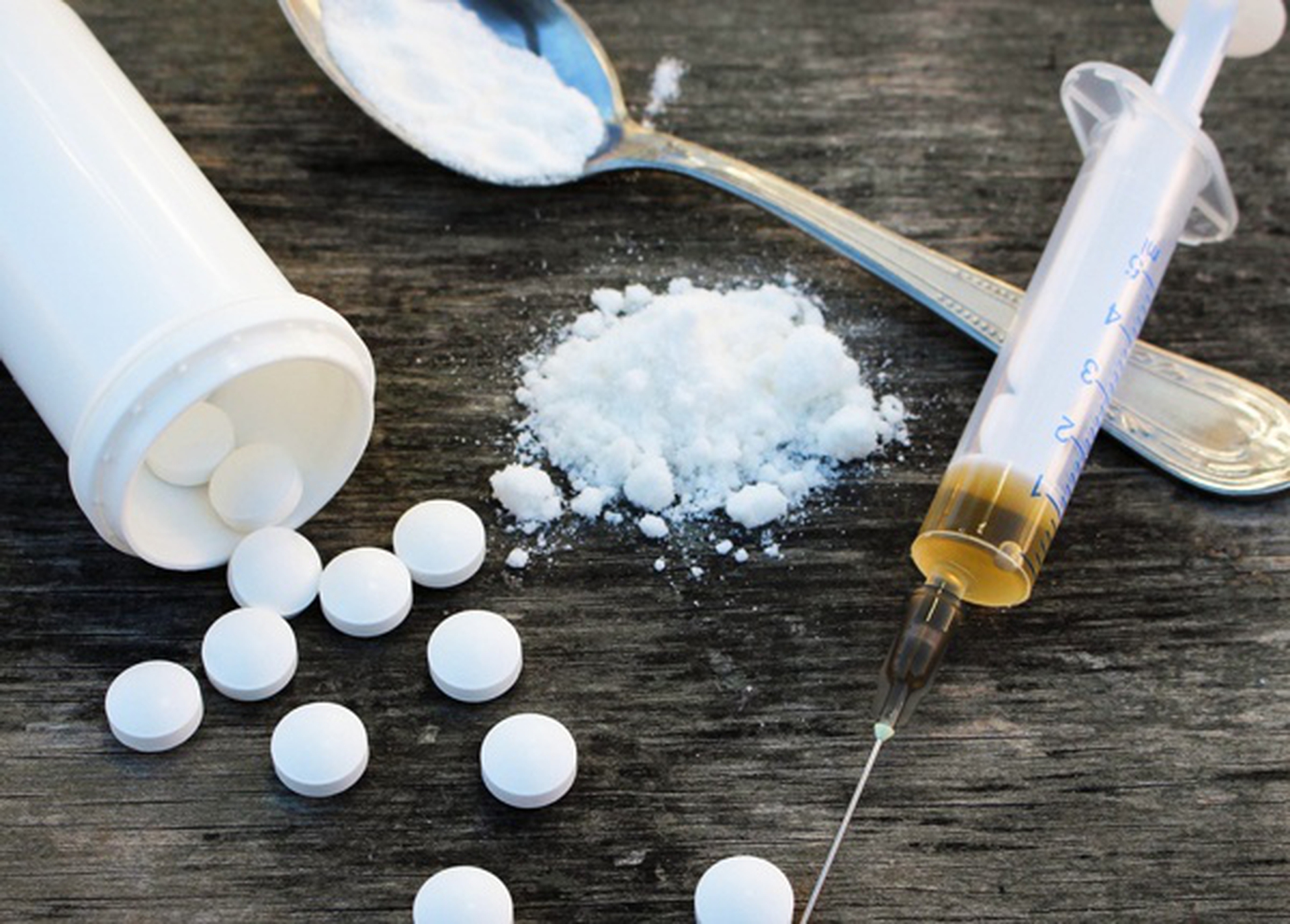When we think about public figures, especially those who brought so much excitement and emotion to our lives, it's quite natural to feel a pull to understand every part of their story. People often wonder about the personal struggles or challenges someone like Eddie Guerrero might have faced. It's a way of connecting with the person behind the public image, wanting to grasp the full picture of their journey, and sometimes, that includes asking questions about sensitive topics.
This curiosity, you know, it stems from a pretty human place. We see someone who gave so much, and we want to know what shaped them, what battles they fought when the cameras weren't rolling. The question of "what drugs did Eddie Guerrero do" comes up often, not just out of simple curiosity, but because it touches on bigger conversations about health, personal well-being, and the pressures that can come with a life lived in the public eye. It’s a way, in some respects, to try and make sense of things.
However, getting clear, precise answers about someone's private health matters, especially after they've passed on, can be very, very tricky. The information we have access to, and what's truly verifiable, is often limited. Our aim here isn't to speculate or share unconfirmed details about any individual's personal health choices. Instead, we want to talk about the general facts around substances, how they affect people, and how information about them is gathered and shared, which could shed some light on the broader topic that questions like "what drugs did eddie guerrero do" bring up.
- How Do You Kill Bamboo
- Celebrities With Dentures
- How Much Blimps Are In The World
- Skiniest Person In The World
- Phil Mattingly Height
Table of Contents
- Understanding the Human Side of Public Figures
- What Does "Psychoactive" Even Mean?
- Is There a Risk When We Don't Have Medical Guidance?
- How Do Experts Keep Track of Medicines?
- What Are "Essential Medicines," Really?
- How Do We Even Measure Drug Use?
- Where Can We Find Good Information About Medicines?
Understanding the Human Side of Public Figures
It's pretty common for people to feel a deep connection to those who entertain or inspire them, especially someone like Eddie Guerrero, who truly left a mark. When a person touches so many lives through their work, there's often a natural desire to know more about their personal path, the triumphs, and perhaps the difficulties they faced. We want to understand the full person, not just the persona we saw in the spotlight. This drive to know more is a very human characteristic, kind of like wanting to read the full story of a favorite character in a book.
This interest can extend to all sorts of personal details, including health and lifestyle choices. Sometimes, people are looking for lessons, or perhaps they're just trying to grasp the realities of life for someone living under such intense scrutiny. The lives of public figures are often dissected, and questions, even very personal ones, naturally surface. This is just a part of how we, as a society, process the lives of those we admire, trying to make sense of the narratives that unfold, even if they are, in fact, quite complex.
Why Questions Like "what drugs did eddie guerrero do" Come Up
Questions like "what drugs did Eddie Guerrero do" often pop up because they speak to a broader interest in the well-being of individuals, particularly when their lives might have involved intense physical demands or other pressures. It's not always about gossip; sometimes, it's about trying to understand the circumstances that can lead someone to certain choices, or the challenges they might have been up against. People are generally curious about the human experience, and that includes the tough parts, too it's almost a way of learning about life itself.
- Destiny 2 Servers Status
- Chase First Time Home Buyer
- Worlds Most Skinniest Person
- What Is The Euro Symbol
- Julie Hagerty Feet
Moreover, when someone passes away, especially at a younger age or unexpectedly, these kinds of questions can become even more prominent. People look for explanations, for reasons, and for ways to process the loss. It's a natural reaction to want to understand what happened, and for public figures, that means the questions often become public, even if the answers remain private or are not fully known. So, this curiosity is, in a way, a reflection of our collective desire for closure and understanding.
What Does "Psychoactive" Even Mean?
When we talk about "psychoactive" substances, we're really just talking about things that change how your mind works. Think about it this way: when you take one of these substances, it gets into your system and starts to affect your mental processes. That could mean how you feel, how you think, or even how you see and hear things. It's like your brain's usual operations get a little tweak, or sometimes, a pretty big shift. This term covers a lot of ground, from caffeine in your morning coffee to medicines prescribed by a doctor, or even substances that are not used for medical reasons. It's basically anything that has an impact on your head space, so to speak.
These substances can bring about different kinds of changes. Some might make you feel more awake or focused, while others could make you feel sleepy or calm. There are also those that might alter your mood quite a bit, making you feel very happy or perhaps a bit anxious. The important thing to grasp is that they work on your brain chemistry, which then influences your thoughts, feelings, and actions. It's a rather direct connection between what goes into your body and what happens inside your head. And this is why, you know, there's so much talk about them and their effects.
How Substances Affect Us, a bit
So, when a substance is called "psychoactive," it just means it has a direct effect on your mental state. It's not just about your body; it's about your brain and how it manages your thoughts and feelings. For example, some might make you feel a burst of energy, while others might slow everything down, making you feel relaxed or drowsy. It’s a pretty broad category, and the way each substance works can be quite different, depending on what it is and how much of it is taken. This is why, in a way, understanding these effects is a big part of talking about substances in general, especially when we consider questions like "what drugs did eddie guerrero do."
The changes these substances bring about can be subtle or quite noticeable. They might change your perception of time, or how you react to things around you. It's all about how they interact with the complex network of chemicals and signals in your brain. This interaction can shift your mood, your awareness, and even your ability to make decisions. So, when people talk about psychoactive substances, they're really talking about anything that can alter your mental landscape, even if it's just a little bit, for a while. It's a pretty fascinating topic, actually, how these things can influence us.
Is There a Risk When We Don't Have Medical Guidance?
Using any kind of psychoactive substance without a doctor's guidance can bring about some serious health worries. When you don't have a medical professional looking over things, you're essentially taking a chance with your well-being. Doctors understand how these substances work, what doses are safe, and how they might interact with other things in your body or with any health conditions you might have. Without that expert oversight, the chances of something going wrong go up quite a bit. It's kind of like trying to fix a complicated machine without the instruction manual or the right tools; you might cause more harm than good, you know?
These health worries can show up in many ways. They might be immediate, like feeling really sick, or they could develop over time, affecting your body and mind in lasting ways. What's more, without proper medical supervision, there's a real chance of developing what people call "drug use disorders." This means that your body and mind can start to rely on the substance, making it very hard to stop using it even if you want to. It's a situation where the substance begins to control you, rather than the other way around. So, in other words, it's a pretty serious consideration for anyone thinking about using these types of things.
The Dangers of Using Substances Without Knowing "what drugs did eddie guerrero do"
When someone uses psychoactive substances without a doctor's input, they're stepping into a situation with some real hazards. The risks involved can be quite substantial, leading to various health problems. These problems might be physical, affecting your body's systems, or they could be mental, impacting your thoughts and feelings. It's a bit like walking a tightrope without a safety net; the chance of a misstep is always there. This is why, you know, health professionals stress the importance of proper guidance when it comes to any kind of substance that affects your mind.
One of the bigger worries is the possibility of developing a drug use disorder. This isn't just about using a substance sometimes; it's about a pattern of use that causes significant problems in a person's life, making it tough to stop, even when they want to. It can affect relationships, work, and overall happiness. So, when people ask questions like "what drugs did Eddie Guerrero do," it often brings up these broader concerns about the potential for harm when substances are used outside of medical advice. It's a really important topic to consider, especially given the impact these things can have on a person's life.
How Do Experts Keep Track of Medicines?
Experts have a pretty smart way of keeping all the different medicines organized, which helps everyone understand them better. They use something called the anatomical therapeutic chemical, or ATC, classification system. Think of it like a giant library for medicines, where each book is put on a specific shelf based on what it's about. In this system, the active ingredients in medicines are sorted into different groups. These groups are determined by which part of the body or system the medicine acts on, and what it's supposed to do. It helps medical professionals and researchers quickly figure out what a medicine is for and how it generally works. It's actually a very practical system for managing a vast amount of information, you know.
This way of sorting things out makes it much easier to study how medicines are used, both in different places and over time. For example, if you want to look at all the medicines that affect the heart, you can find them grouped together. Or, if you want to see all the medicines used to treat a certain kind of illness, they'll be in a related group. It brings a lot of order to what could otherwise be a very confusing collection of substances. So, it's a tool that helps with everything from research to making sure people get the right treatments, which is pretty important, as a matter of fact.
Sorting Out Medicines and "what drugs did eddie guerrero do"
When it comes to understanding how medicines are organized, there's a system that helps experts keep everything straight. It's a bit like sorting your clothes by type – all your shirts together, all your pants together. For medicines, they're grouped based on what part of the body they work on and what their main purpose is. This helps health professionals make sense of the huge number of different substances out there. It’s a very practical way to categorize things, allowing for clearer discussions about what a medicine does and where it fits in the bigger picture of health care. This kind of organization is pretty essential for managing health information, especially when questions about specific substances, like those implied by "what drugs did eddie guerrero do," come up.
This system also makes it easier to track how different types of medicines are used across different populations or regions. It provides a common language for discussing drug effects and uses, which is incredibly helpful for researchers and policymakers. Without such a structured way to classify substances, it would be much harder to study their impact or to regulate their use. So, while it might sound a bit technical, this classification system is actually a fundamental piece of how we manage and talk about medicines in a systematic way, which is, you know, quite a big deal for public health.
What Are "Essential Medicines," Really?
You might hear the term "essential medicines" and wonder what that actually means. Basically, these are the medicines that health experts around the world agree are the most important for meeting people's basic healthcare needs. They're chosen because they are effective, meaning they really work, and they are safe to use when given correctly. It's not just about any medicine; it's about the ones that truly make a difference in public health, the ones that are needed to keep communities healthy and well. So, when we talk about these, we're talking about the fundamental tools for health care, the ones that are, you know, absolutely necessary.
The process of picking these medicines is pretty thoughtful. A group of experts looks at a lot of things: how important the medicine is for public health issues, how much proof there is that it helps and what its risks might be, and also how much it costs and if people can actually afford it. They want to make sure that these medicines are not only good but also available to everyone who needs them. This list isn't set in stone either; it gets looked at and updated every two years by a special
Related Resources:



Detail Author:
- Name : Dr. Evalyn Gutkowski
- Username : kozey.julian
- Email : robert.goodwin@pfannerstill.com
- Birthdate : 1981-01-25
- Address : 9866 Faustino Mission South Daniellemouth, CA 40267-6179
- Phone : 301.684.9210
- Company : Kihn and Sons
- Job : Nursery Manager
- Bio : Quis aut magnam soluta sed ut odit. Temporibus qui repellat quia et est repellendus soluta. Iure consequatur et delectus fugit molestiae. Velit eum maiores esse corporis aut libero aspernatur sed.
Socials
twitter:
- url : https://twitter.com/ziemann1975
- username : ziemann1975
- bio : Delectus et et et quia dignissimos quis. Est ad possimus quis ipsam ducimus.
- followers : 5518
- following : 1856
instagram:
- url : https://instagram.com/ziemann2024
- username : ziemann2024
- bio : Consectetur et ad et libero. Tenetur corrupti ratione ea ullam dolor.
- followers : 3593
- following : 2266
facebook:
- url : https://facebook.com/ziemanns
- username : ziemanns
- bio : Qui eos voluptatem totam enim modi.
- followers : 4553
- following : 2665
tiktok:
- url : https://tiktok.com/@sallieziemann
- username : sallieziemann
- bio : Aut molestiae itaque dolor nesciunt rerum sit est qui.
- followers : 5849
- following : 708